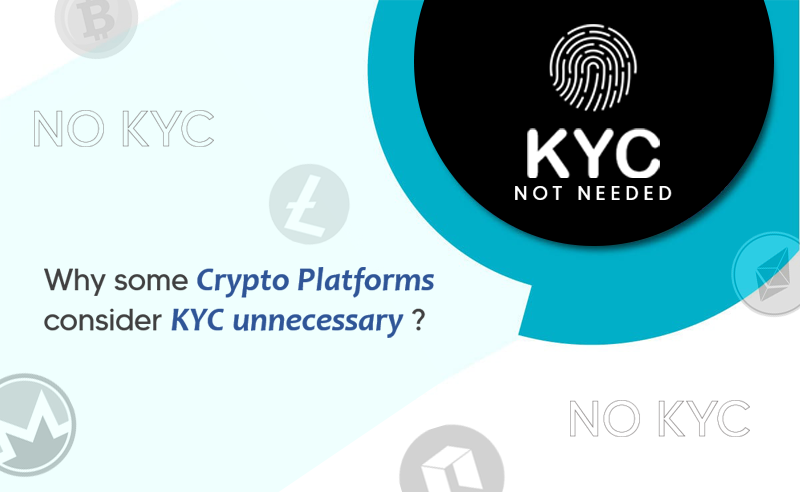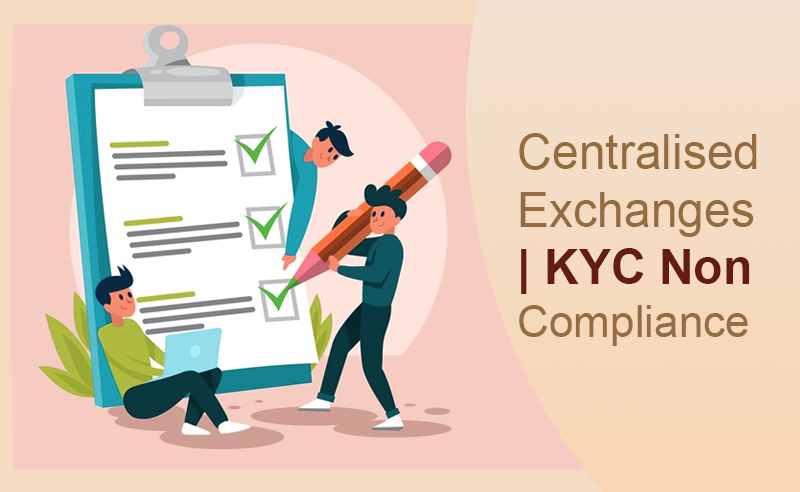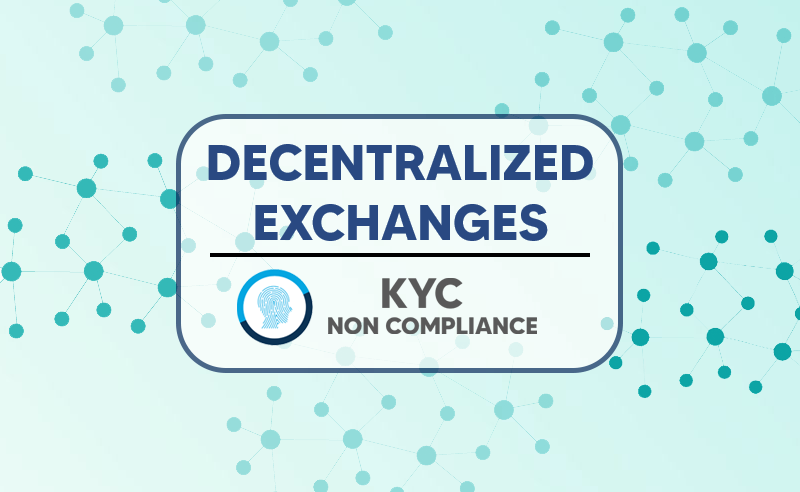Table of Contents
Bitcoin was born in 2008 amid the infamous global financial collapse. Cryptocurrency or Bitcoin was born to facilitate privacy-oriented value storage and transfer of digital assets. One of the main aims of the introduction of Blockchain-based crypto assets is to avoid the interference of the intermediary or any central entity with an effort to protect the identity of the customers while maintaining the security on the transparent network. The central element of their philosophy was to combat the inherent distrust of the states in favor of sovereignty and self-determinism of the individual. But as the industry started to grow, many criminals started invading the crypto space and government regulatory bodies started imposing the rules and regulations to create a conducive environment for the investors. Some of the players followed the protocols while others just stuck to the core principles of anonymity and privacy. In this article, we are going to discuss KYC compliance which was being imposed by the several authorities and the exchanges who consider that KYC non-compliance can retain their core principles.
Why Do Some Crypto Platforms Consider KYC Unnecessary?
Wendy McElroy, author of The Satoshi Revolution advocated that the government should not be permitted to monopolize the financial affairs of their citizens. The term “law” turns into the matter of power or dominance of people of government authorities. In terms of regulation, crypto space lacks a consensus in protecting investors. Some exchanges have deemed Know Your Customer (KYC) as unnecessary claiming that it infringes the right to privacy of users while others consider the regulations as the obligation to perform KYC.

Non-compliant crypto exchanges argue that KYC Compliance discourages new investors, increases the cost of compliance, and hampers innovation also. One of the renowned exchanges, Kraken advocated the cost of compliance related to handling subpoenas as turning into a barrier of entry. Rather than dissuading the criminals and enhancing transparency, many of the traditional crypto investors advocate that KYC compliance financially excludes billions of unbanked populations lacking documentation. Critics of the regulations remain convinced that regulations harm more than good. While some exchanges are evading the compliance by operating offshore and bans US investors from signing up, the majority of the platforms forcefully to regulatory demands or face the results.
KYC Non-Compliance | Platforms Not Requiring KYC Authentication
Are you interested in buying cryptocurrencies without the chaos of the KYC process and trust enough on your platform for maintaining your funds? In this section, you will get to learn the various exchange platforms where KYC compliance is not necessary.
Centralized Exchanges | KYC Non-Compliance

- Binance: One of the renowned crypto exchanges with more than 6 million users, Hong Kong-based exchange with huge trading volumes does not ask to complete the KYC procedure for trading less than 2 BTC for non-US investors. But if you have to trade more than 2 BTC you need to complete the KYC procedure. With high-level security protocols in its infrastructure, Binance has to be compliant with regulations to avoid heavy penalties.
- Kraken: US-based crypto exchange Kraken is also popular among the crypto investors which is also KYC non-compliant and trust on its infrastructure to maintain the security of the funds of the users and respects the core principle of anonymity of crypto space.
- KuCoin: Crypto to crypto exchange platform hosting more than 450 trading pairs with high trading volumes and meager transaction fees also have the hassle-free login process without any requirement to complete the procedure of KYC.
- BitFinex: Launched in 2012, it was initially peer-to-peer exchange but turned to a centralized crypto exchange which allows the users to trade, deposit and withdraw funds up to 10 BTC worth a day without any KYC compliance or procedure but about that users have to provide the details to identify the entity.
Decentralized Exchanges | KYC Non-Compliance

- ShapeShift: The [perks of using decentralized exchanges is that you do not have to create your account to buy or sell cryptocurrencies and also you need not submit the personal details for trading, withdrawing, and depositing the digital assets. There is always a challenge for these exchanges to maintain security along with anonymity. Shapeshift without being KYC compliant assures that users can safely trade by maintaining some of the terms and conditions like keeping all assets of affected users for making refund claims within 90 days. With a variety of crypto assets along with Bitcoins, it allows us to swiftly swap the coins either with fiat or crypto.
- Changelly: Changelly is also a decentralized exchange that instantly offers the peer-to-peer exchange of the crypto assets. Serving more than 15000 exchanges a day with more than 100 coins to trade, Changelly is a well-known platform for maintaining the safe network being non-compliant of KYC norms. Users with legitimate wallet addresses can use the platform for the swapping of crypto assets.
- OpenLedger: DEX platform created on the BitShares Blockchain network allows users to list their coins or exchange their digital currencies with the other users connected to the platform. Users can easily convert BTC owned by them or EOS paired with BitShares token to fiat-backed SmartCoins, which can be easily cashed out by utilizing the gateway of Ripple, Paypal and many more. The platform also supports a number of stablecoins.
- IDEX: It is a decentralized exchange specifically for Ethereum and Ethereum based tokens boasting the high trading volume. Users on the IDEX platform are known by their wallet addresses rather than verified personal details.
Summing Up
In the present scenario of increasing crimes and cyberattacks, there has been the question in the crypto space- Will KYC Non-compliance can create the conducive environment for safeguarding the investors and retaining them in crypto space. Some of the core believers of the Blockchain-based cryptocurrency might argue that the highly secured cryptographic infrastructure can safeguard the interests of citizens along with maintaining their anonymity. To maintain financial sovereignty, personal freedom and liberty are the main features of the Bitcoin space which must not be hampered by the regulators after imposing certain compliance and discourage the new investors or platforms who can accelerate the crypto movement in future.

